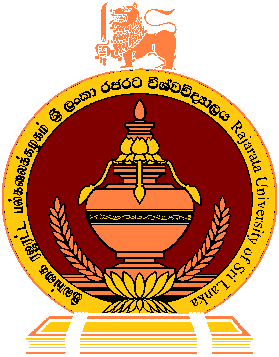Contribution to Undergraduate Program
Undergraduate Programme
The Biochemistry curriculum aims to make students independent, self directed and lifelong learners. The curriculum consists of general, clinical and nutritionalBiochemistry.General Biochemistry is done as a module named “Introduction to the Study of Man.”Clinical Biochemistry is conducted as system based modules;
- Cardiovascular System
- Respiratory System
- Musculoskeletal System
- Body Fluids Gastrointestinal System
- Urinary System
- Endocrine System
- Reproductive System
- Nervous System
Nutritional Biochemistry is conducted as a comprehensive course covering modules in energy, protein, fat, mineral and vitamin metabolism, anthropometry and diet therapy. Learning objectives are made available to students via the library where they make copies at the photocopy unit. The specific learning objectives provide guidance to students on the expected goals. They are expected to achieve the learning objectives through lectures, tutorials, small group discussion, practical classes, clinical demonstrations, seminars, text books and journal articles.
Lectures are conducted by the Head of the department and senior lecturers whilst temporary lecturers conduct tutorials and practical classes. The time allocated for a lecture is 50 – 55 min and for a tutorial and a practical class it is 2hrs.Students must have more than 80% attendance at tutorials, seminars and practicals for them to be eligible to sit for the 2nd MBBS examination. Seminars are conducted in the 3rd semester.
The whole course is conduct in 3 semesters(15 weeks per each)with two vacations in between. Three mid semester formative examinations are conducted in each semester with two summative examinations at the end of first and second semesters.The 2nd MBBS, which is a bar examination is held 4 weeks after the end of the 3rd semester. Performance in Biochemistry is evaluated in terms of distinction, pass and failure. A prize is offered for the best student in Biochemistry based on the results at the 2nd MBBS examination.
Broad Learning Objectives
To understand the normal structure and function of cells, their regulation, metabolism of nutrients and excretion of waste. To collect information, order appropriate investigations where necessary, analyze data, deduce the likely biochemical disorder/s and recommended preventive and therapeutic actions to be taken in the management and cure of the diseases.
Downloads
Outline of the Biochemistry Undergraduate Programme (pdf)
Biochemistry course – Broad Objectives (pdf)
Detailed learning objectives :
Module 1 : Introduction to the study of man (pdf)
Module 3 : Circulatory system (pdf)
Module 4 : Respiratory system (pdf)
Module 5 : Musculoskeletal system (pdf)
Module 6 : Gastrointestinal system (pdf)
Module 7 : Urinary system (pdf)
Module 8 : Endocrine system (pdf)
Module 9 : Reproductive system (pdf)
Module 10 : Nervous system (pdf)
Contribution to Post Graduate Program
Postgraduate Programme
Guided research programmes are available for those who have the necessary qualifications and funding necessary to pursue M. Phil degree.


